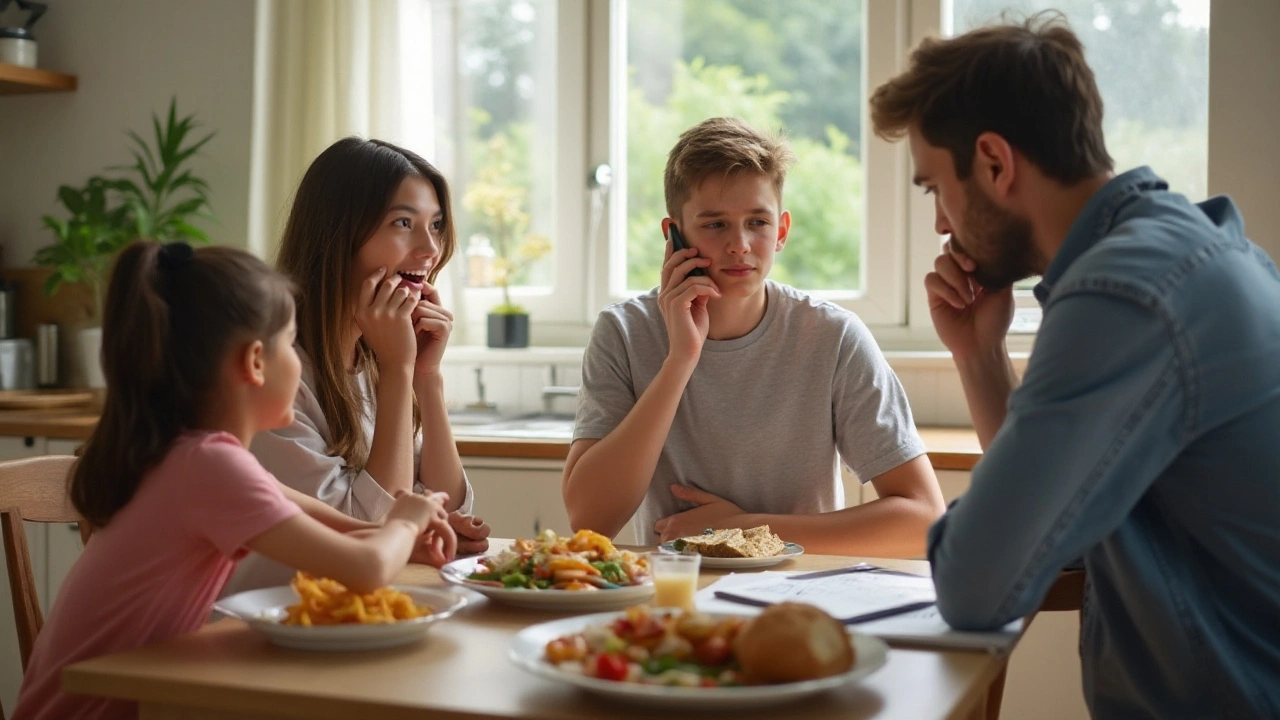Food Poisoning: Know the Signs, Handle Treatment, and Prevent It Next Time
Food poisoning hits fast and can make you miserable. Nausea, vomiting, diarrhea, and stomach cramps often kick in within hours of eating contaminated food. Mild cases tend to settle in a day or two, but severe cases can land you in the ER, especially if you get dehydrated or have a weak immune system. Knowing what to look for—and what steps to take—can save you a lot of pain (and anxiety).
Here’s what stands out: about 1 in 6 people get food poisoning every year in the US. Most of the time, bacteria like Salmonella, E. coli, or Campylobacter are the troublemakers. Viruses, parasites, and even some toxins from mold or chemicals in food also make the list. Symptoms usually appear within a few hours to three days, depending on the germ. The classic signs are stomach pain, watery diarrhea, feeling sick to your stomach, and running a fever. If you start puking non-stop, can’t keep liquids down, or get really dry mouth and dizziness, it’s time to see a doctor—these are red flags for dehydration.
The good news? Most simple cases just need rest and hydration. Sip water, clear broths, or an oral rehydration solution—anything to help you keep fluids up. Forget sports drinks or soda; they can upset things further. When you feel ready to eat again, stick with bland foods like toast, rice, bananas, or applesauce. Skip dairy, alcohol, caffeine, spicy stuff, and greasy meals for a few days, even if you’re feeling better. These will irritate your gut and can set you back.
Don’t rush for antibiotics. For most food poisoning—especially caused by viruses or mild bacteria—they won’t help. In fact, using them when you don’t need to can make things worse. The exception? If your doctor suspects serious bacterial infections like listeria or you’re at risk for complications, then meds might help. Never take leftover antibiotics from someone else. If you’re dealing with a severe case or have chronic health problems, call your provider.
Avoiding food poisoning is about smart habits: always wash your hands before handling food, cook foods (especially meats) to safe temperatures, keep raw foods separate, and store leftovers in the fridge right away. Rinse fruits and veggies under running water—even if you plan to peel them. Watch for recalls, especially on bagged lettuce, deli meats, and undercooked eggs. Eating out? Choose places with visible cleanliness, and avoid foods sitting out too long, like at buffets or picnics.
If you travel, especially to places with different water safety standards, drink bottled or filtered water and avoid raw produce that could be washed in unsafe water. Traveling? Bring a simple hand sanitizer and use it!
Curious about common medications and supplements that affect your recovery or immune response? You’ll find articles on antibiotics like Cepmox, dietary supplements like Pimpinella, and safe ordering tips for pharma online right here at PharmaInsight. Stay informed and treat your gut with the care it deserves—you’ll bounce back faster, and next time, you might avoid food poisoning altogether.
How to Decide If Your Tummy-Ache is Food Poisoning
This article discusses how to determine if a tummy-ache might be a sign of food poisoning. It provides tips on distinguishing between common stomach pain and symptoms that might indicate a more serious issue. You will also learn about varying symptoms, prevention tips, and when to seek medical help.
Read more
